THERE was great cause for celebration this St Piran’s Day (March 5) as locals received their Cross of St Piran in recognition of the years of service they have given the churches and communities across Cornwall.
Among the thirteen recipients this year, Pam Parnell of Launceston, Gillian Beresford-Power from Callington and Helen Watson from Bodmin were presented with their Cross of St Piran at special services in St Piran’s Church, Perranzabuloe last Sunday.
The Bishop of Truro the Right Reverend Philip Mounstephen said: “The Cross of St Piran Awards are a significant way for us to say thank you to those people in our churches who have gone above and beyond in their service. I am humbled and grateful for these people and feel honoured that I am able to recognise their efforts in this small way. While some are involved in work that makes a huge difference, others are quietly working away in the background - but all are helping to keep the Church both fruitful and sustainable in their own communities.”
Deirdre Croker, Looe
Has “proactive approach”
“I’m really quite overwhelmed by all this,” says Cross of St Piran recipient Deirdre Croker, of Looe.
Deirdre was nominated for her “pro-active approach to mission and outreach” and as “an essential part of the worshipping community” in the beautiful seaside town of Looe.
Deirdre was born in Lancashire. Her father was a priest and she has been a church member all her life. She moved to Cornwall at the age of 10 when in 1953 her father became the parish priest for South Petherwin near Launceston. During the time of her father’s ministry, she sang in the choir and read lessons in church services.
Since then she has lived in St Germans, Saltash, St Dominic and now Looe. In 1996, she began 15 years of service as PA to Looe’s then incumbent minister. The next rector asked her to become churchwarden. After six years in that role, she also took over as lay chair.
In October 2021, following a suggestion from a local Methodist minister, Deirdre launched the Good Grief Café in the parish, a group for local people who have lost their loved ones.
“We started it just six months after my own husband had died,” she says. “So it was very close to my heart.”
She describes it as a “friendship support group”. They meet twice a month – including a monthly get-together for a Sunday roast!
Back in 2014, a Deanery meeting had come up with the idea of a Memory Café. One of her colleagues had offered to launch the initiative, and Deirdre had agreed to support it. Nearly ten years later, it’s still going strong.
“We have about 20 people coming along on average,” Deidre says. “It’s not just for people with memory loss. We try to make it a social event where elderly people from the local community are all welcome.”
She stresses that neither of these groups are overtly religious. “It’s not about being invasive, but about being a friend to the community,” Deirdre says.
She is also part of an initiative performing Bible stories each month in three local schools.
“The church has a big role in reaching out, in being of service to the community,” she says.
She says she finds it very spiritually rewarding to support the work of her rectors and her church. With characteristic modesty, she feels both honoured and surprised to have been chosen to receive the recognition of a Cross of St Piran award.
“I’m amazed,” she says. “I don’t see myself in the limelight at all. I see myself more as an enabler of people who have greater talents than myself.
“I feel I’m getting it for the whole parish. They all support me and enable me to do what I do.”
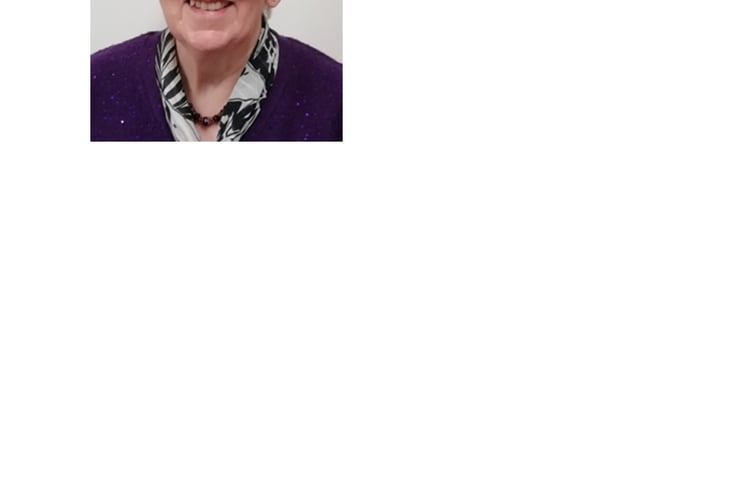
Fernley Rowe, St Neot
Fourth generation churchwarden
Another of the 13 people who have been recognised for their years of service is Fernley Rowe from St Neot.
The story of Fernley Rowe’s involvement with his parish church goes back to the 1880s. He now represents the fourth generation of his family serving as churchwarden in the village of St Neot near the town of Liskeard in southeast Cornwall. Indeed, his family have so far completed a total of 99 years in service to the church.
Fernley will be celebrating his 78th birthday this year, and says he is looking forward to marking his family’s century of churchwardenship in 2024.
He is praised as a “statesman of the community” – “nothing seems to be too much trouble for him”.
Fernley has three sons. Their own involvement in their local church looks set to take the family tradition to a fifth generation.
He says, however, that at their age he hadn’t been interested in continuing that tradition himself. He had a young family and was running a farm. It was only later in life that he was able to find the time to grasp the family baton of such dedicated service to his parish.
Nevertheless, he had been involved in the church from an early age. “When I was a small child, my first job in church was to pump the organ. I got thruppence a time for it, in old money,” he says. “I did that until we went electric.”
In his teens, he served as a sidesman, taking the collection on Sundays.
By the time he was 17, he was learning how to ring the church bells. “I still ring the bells now – not quite so often, but I’m there to ring them if I’m needed,” he says.
His extraordinary history of service to his parish is counterpointed by his own personal modesty. “I’m no good at public speaking or anything like that,” he insists, “but I’m here for everything else.”
In his late 50s, he became churchwarden. He has now devoted nearly eight decades to his local community.
“I’ve lived in the parish all my life,” he explains. “I’ve supported all the local organisations – from pantomimes to local historians, from the scouts to our local charities group.”
He has two young granddaughters, whom he has also encouraged to join the church. “I think it gives them something more to think about, rather than being on their iPads or phones all the time,” he says. “It gives them a bit of peace. One of my granddaughters is particularly interested in it. I think it gives her a little bit more belief in Christ, and that gives her more belief in herself.”
He also helps to organise local school visits to the church. “You see the faces of the children who’ve never been into the building before – their little faces just light up.”
This large medieval church is renowned for its stained glass windows, which date back to the fifteenth century. Fernley is clearly very proud of his local church and of his family’s longstanding connection with it. Yet he remains in himself a deeply modest man.
He says that he is of course very happy to be receiving the Cross of St Piran award: “I’m honoured and all that, but I look around and see there are others who’ve done just as much as – and more than – I’ve done. But this award is honouring the whole family – all the years and the energy that the family have put into this – parents, grandparents, great-grandparents, children, grandchildren, husbands and wives.”
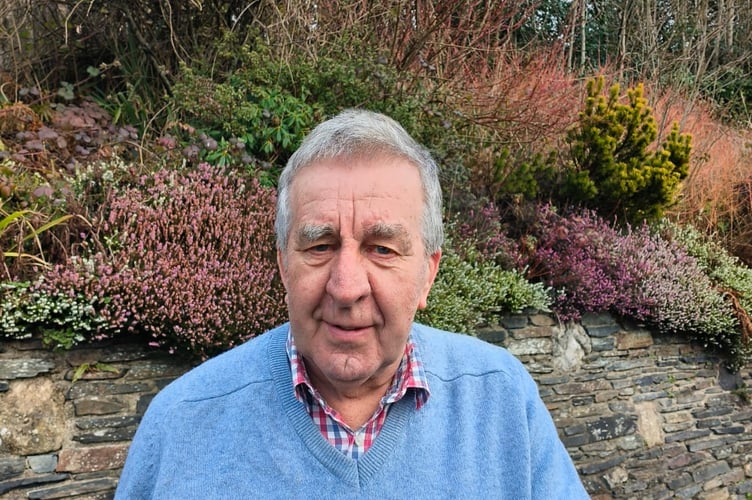
Gillian Beresford-Power, Callington
A “quiet, friendly saint”
Another St Piran’s awardee was Gillian Beresford-Power from Callington.
When Gillian’s parish priest rang her to let her know he’d nominated her for a Cross of St Piran award, she’d replied, “Heavens, why have you done that?”
Her nomination described her as a “quiet friendly saint”. She says she hopes she’s friendly but feels she’s not particularly quiet. She adds, “I’m not a saint for sure”.
She grew up in London. She remembers being “a bit of a loner” as a child. She went to Sunday School and joined a church choir.
“But I hardly ever heard about Jesus, except in hymns,” she says. “I didn’t know what being a Christian meant.”
She traces the origins of her faith back to 1947, to her mother’s near-death experience at the moment of Gillian’s birth. Her mother had a heart condition: her heart had in fact stopped on the delivery table. She’d died and then come back to life. In later years, she’d told Gillian of witnessing a light at the end of a dark tunnel, a bright beautiful garden where old friends and family were awaiting her arrival, and a voice telling her to return, telling her it wasn’t yet her time.
But it wasn’t until the 1970s when, a new mother herself, Gillian herself came back to the church. She took her children to a tiny tots group near where she lived in London, and later, once the children had started school, she joined a young mothers group – a group which she eventually came to lead.
In 1987, Gillian moved to Cornwall – to the coastal village of Downderry, where she ran a grocery shop and tearoom.
By this point, she’d stopped going to church, but over the following years she slowly regained her active faith. She returned to regular churchgoing when she moved to Callington in 1990. As her faith grew, she enrolled on an Alpha course. “I thought I was a Christian, but then realised there was so much more to learn,” she says.
“I still felt there was something not right – everyone else was at the party and I wasn’t.”
Her spiritual turning point took place at a spring harvest festival in 2014. She has been a member of St Mary’s Church in Callington for more than thirty years. She has been involved in fundraising for refurbishments to the building, and then in running the kitchen at the church. She did that for 12 years, and took it over again in the immediate wake of the pandemic crisis. She ran a women’s fellowship group at the church for nine years, and when the parish recently decided to establish a warm space initiative she (as she modestly puts it) “sort of volunteered”.
That new initiative, originally intended to support parishioners through the winter months, is now set to become a permanent fixture.
She has also started a mobility and balance group for elderly people. “It’s sessions of exercise to try to improve core strength and balance,” she says. “But most of all it’s just about seeing each other in fellowship and friendship. It’s a very diverse group of people. We get on very well. We laugh a lot. It’s good.”
And so, after all these years, she has now come to know what her faith means to her. “Christianity means security, love, acceptance and the absence of fear. Being a Christian isn’t just about believing in Jesus and going to church. That can take a long time to sink in.”
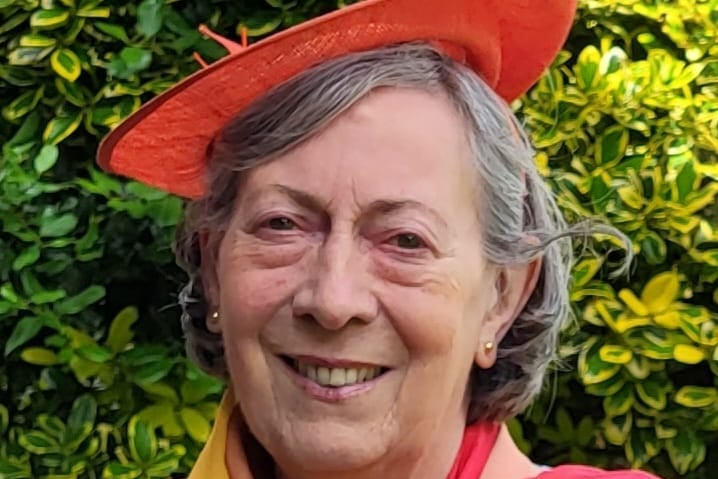
Helen Watson, Bodmin
Supported the most vulnerable
Helen Watson was born in Surrey but has lived in Cornwall for the last 40 years.
She is, as her citation for the Cross of St Piran award says, someone who “gives herself to the service of the church and the most vulnerable with utmost dedication” – someone who gives “help in very practical ways in the face of the most challenging of circumstances” – someone who “finds satisfaction in making a difference rather than in making herself heard”.
She used to run a smallholding near the village of Lanivet, but now, in retirement, has moved closer to the town of Bodmin. She continues however to work to serve her parish church at Lanivet, as well as the wider community in Bodmin.
She’s been involved in church activities for the last 35 years. As a child, she had been raised as a Christian, but what cemented her faith was when she joined the Methodist Church in Lanivet. “They were wonderful in their teaching and encouragement,” she says.
She took an Alpha course with the Methodists, but later moved across to her local Anglican church.
Helen’s faith remains central to her life. “My faith means everything to me,” she says. “It’s my whole life. It guides me and gives me strength. It’s what I turn to for everything.”
She’s done a lot of work in schools and around after-school activities. She says she loves working with children.
More than a decade ago, she started her own version of a Sunday School in Lanivet. “I could see there was nothing for the children,” she says. “So I started a faith-based Sunday craft club for them. More recently, we’ve restarted it for a new generation of village children.”
She also runs an annual Scarecrow Festival to celebrate the harvest in Lanivet and the village’s quarterly ‘Families Fest’.
Helen’s devotion to her local community doesn’t stop there. She continues to lead the foodbank in Bodmin, which she was responsible for establishing, as a satellite to the Wadebridge foodbank, some 13 years ago.
“It’s very important nowadays because the need is so great,” she says. “It’s so important that we help those in need, because it’s what Jesus would have done. I always ask myself what Jesus would do.”
With that quiet modesty for which she’s well known, she says she feels rather embarrassed at being chosen to receive the Cross of St Piran award.
“I get great satisfaction from doing my work and I don’t need to be recognised for it,” she says. “But I’m really honoured that somebody would put my name forward and it has honestly surprised me.”
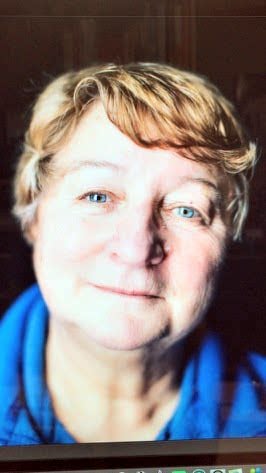
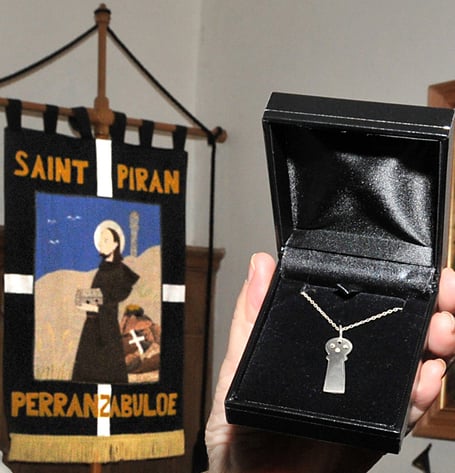


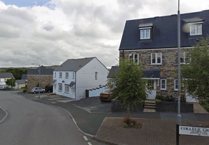

Comments
This article has no comments yet. Be the first to leave a comment.